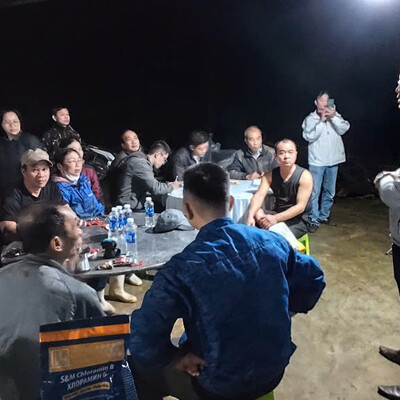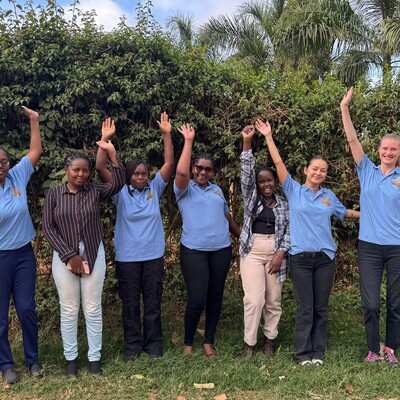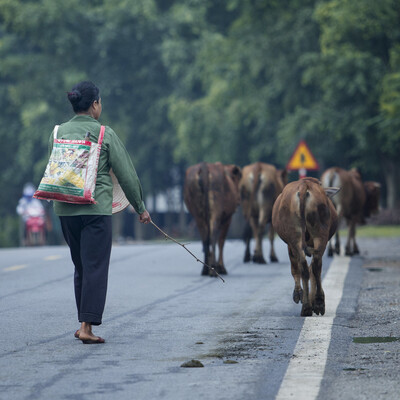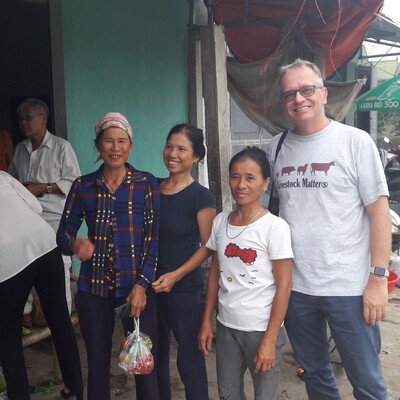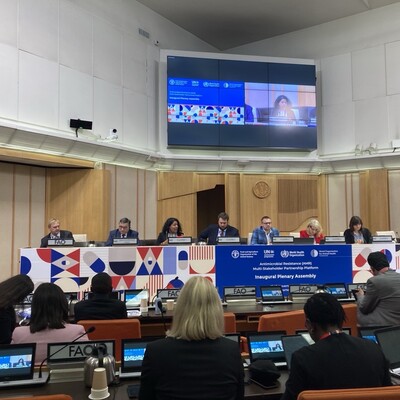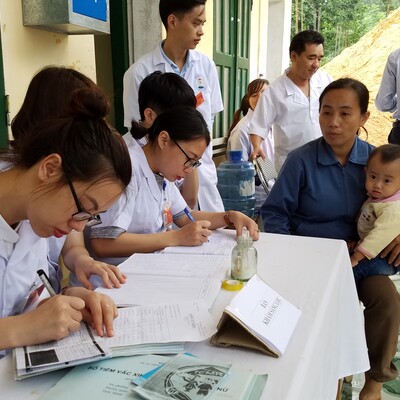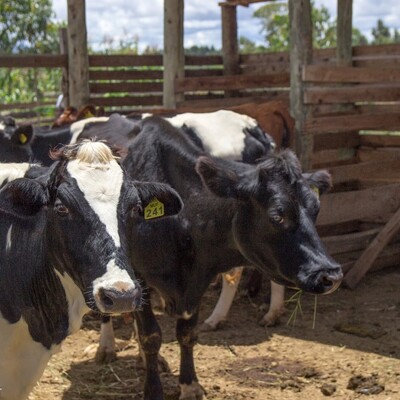

COHESA's One Health Observatory: A one stop shop on One Health activities in 12 countries in Africa
On 3 November 2023, the world observes One Health Day, emphasizing the interdependence of human, animal, plant and environment health.
The Capacitating One Health in Eastern and Southern Africa (COHESA) project is at the forefront of this movement, operating across 12 countries in eastern and southern Africa.
Its overarching aim is to build capacity to deal with threats and issues which are best suited to a One Health approach.
It focuses on One Health governance, education, research and implementation, enabling multi-sectoral collaboration between governmental bodies and stakeholders.
The COHESA project supported by the European Union Organisation of African, Caribbean and Pacific States (OACPS) Research and Innovations Programme, part of the African, Caribbean and Pacific-European Union (ACP-EU) initiative.
It is implemented by ILRI, CIRAD and the International Services for the Acquisition of Agri-biotech Applications (ISAAA) AfriCenter in collaboration with national partners.
To mark One Health Day, the COHESA project launched a One Health observatory, an international initiative under the project's umbrella that serves as an online, centralized hub for sharing and documenting the status of One Health activities in the project countries, with ambitions to extend its scope to more countries in north, central and west Africa.
Besides knowledge sharing, the observatory will allow individuals and organisations interested in One Health to see what is being done in different countries; this will help identify potential collaborations and avoid duplication of effort, with rapid identification of supporting documents and materials.
Theo Knight-Jones, who leads the project from the International Livestock Research Institute (ILRI), shares: 'The increasing recognition of the importance of One Health approaches in addressing human, animal and environment health threats has led to an explosion of activities in this complex and diverse space. The One Health observatory will act as a one-stop shop for people wanting to know the status of One Health implementation in a country, including information on the major threats and actions. In this way, synergies can be identified and accelerated, and duplication avoided.'
The One Health observatory focuses on three primary domains: governance, research and education, and One Health delivery.
- Governance: This aims to institutionalize One Health by creating and strengthening One Health platforms within governments and across departments. These platforms will engage a wide array of stakeholders, including researchers, service providers, the private sector and civil society representatives.
- Research and education: Here, the focus is on identifying and partnering with educational and research institutions with the potential to make a meaningful impact using the One Health approach. The aim is to expand the inclusion of One Health in secondary, tertiary and vocational education.
- One Health delivery: This domain concentrates on operationalizing One Health activities, bridging the gap between theoretical solutions and practical implementation. The aim is to achieve sustainable solutions through collaboration with public and private service providers.
'Africa must develop and institutionalize its One Health frameworks, ensuring they are operational at all levels. Inter-ministerial collaboration is crucial for establishing the necessary legal, administrative and technical structures. A diverse network of professionals requires capacity building to operationalize these frameworks effectively. The One Health observatory can serve as a pivotal platform for sharing information and experiences within Africa, thereby enhancing regional capacity,' says Alexandre Caron of the French Agriculture Research Centre for International Development (CIRAD).
'By making available information on One Health trends, easy-to-use knowledge products and experiences, the observatory will deepen understanding of essential attributes to nurture for a fully functional One Health Platform in focus countries,' says Margaret Karembu, director of the ISAAA AfriCenter.
Visit the One Health observatory.
Read more on ILRI's One Health research.
You may also like
Related Publications

Review of a decade of fauna research in Côte d'Ivoire with insights into wildlife health and zoonotic transmissions
- Dindé, A.O.
- Cook, Elizabeth A.J.
- Terfa, Zelalem
- Soro, D.
- Hung Nguyen-Viet
- Bett, Bernard K.
- Bonfoh, B.

Biodiversity threats and socio-ecological dynamics in Chebera Churchura National Park: A one health approach
- Guadu, T.
- Abera, B.
- Tesfay, K.
- Berhane, A.
- Tafese, A.
- Solomon, T.
- Debebe, B.
- Getachew, M.
- Shibabaw, A.
- Araba, A.
- Abdurahman, M.
- Yadeta, W.
- Tadesse, Y.
- Ayemeta, T.
- Knight-Jones, Theodore J.D.
- Mor, Siobhan M.
- Mereta, S.T.
- Kaba, M.

A one health approach to prioritizing emerging zoonotic diseases (EZDs) in northern Vietnam
- Luong Hung Nam
- Thang Nguyen-Tien
- Lindahl, Johanna F.
- Sinh Dang-Xuan
- Phuc Pham-Duc
- Unger, Fred
- Bui Nghia Vuong
- Dao Duy Tung
- Hung Nguyen-Viet
- Hu Suk Lee

From protection to pollution: Evaluating environmental and human health risks of acaricide use in dairy farming in Kenya
- Maina, Kevin W.
- Parlasca, M.C.
- Rao, E.J.O.





